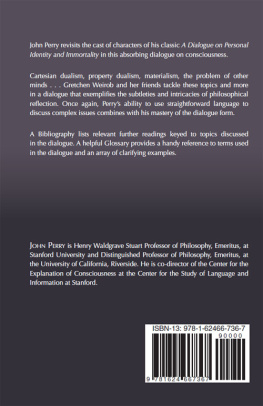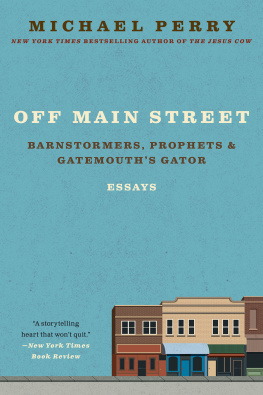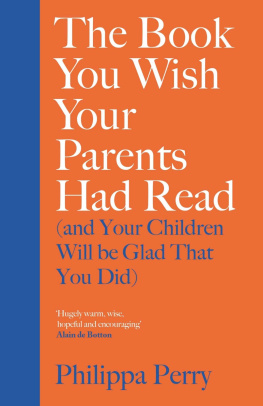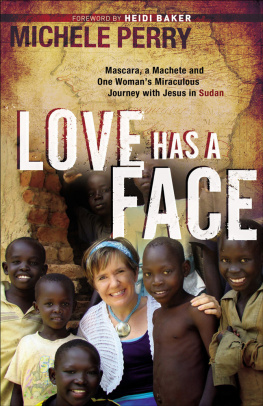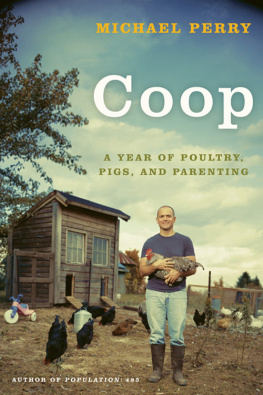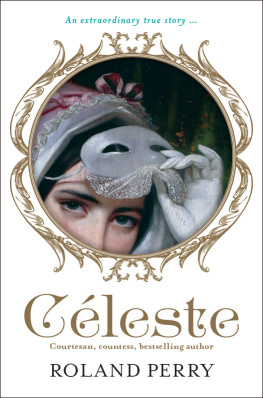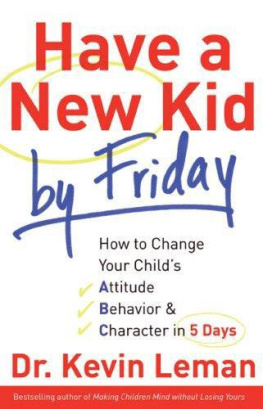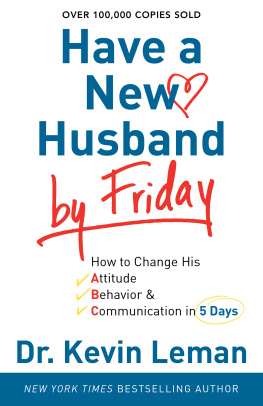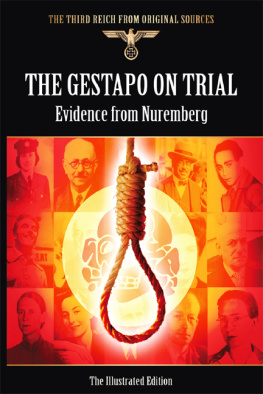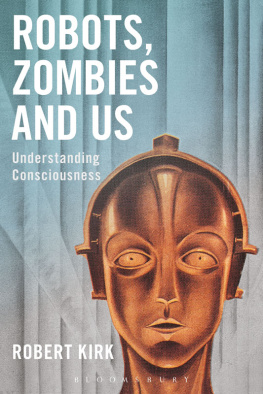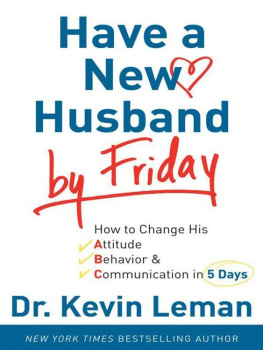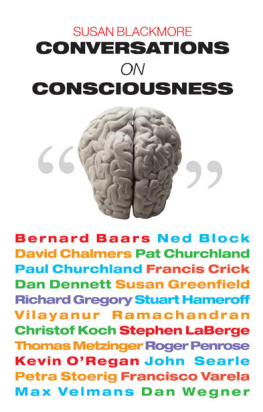Perry - Dialogue on consciousness: minds, brains, and zombies
Here you can read online Perry - Dialogue on consciousness: minds, brains, and zombies full text of the book (entire story) in english for free. Download pdf and epub, get meaning, cover and reviews about this ebook. City: Indianapolis, year: 2018, publisher: Hackett Publishing Company, Incorporated, genre: Religion. Description of the work, (preface) as well as reviews are available. Best literature library LitArk.com created for fans of good reading and offers a wide selection of genres:
Romance novel
Science fiction
Adventure
Detective
Science
History
Home and family
Prose
Art
Politics
Computer
Non-fiction
Religion
Business
Children
Humor
Choose a favorite category and find really read worthwhile books. Enjoy immersion in the world of imagination, feel the emotions of the characters or learn something new for yourself, make an fascinating discovery.
Dialogue on consciousness: minds, brains, and zombies: summary, description and annotation
We offer to read an annotation, description, summary or preface (depends on what the author of the book "Dialogue on consciousness: minds, brains, and zombies" wrote himself). If you haven't found the necessary information about the book — write in the comments, we will try to find it.
Dialogue on consciousness: minds, brains, and zombies — read online for free the complete book (whole text) full work
Below is the text of the book, divided by pages. System saving the place of the last page read, allows you to conveniently read the book "Dialogue on consciousness: minds, brains, and zombies" online for free, without having to search again every time where you left off. Put a bookmark, and you can go to the page where you finished reading at any time.
Font size:
Interval:
Bookmark:
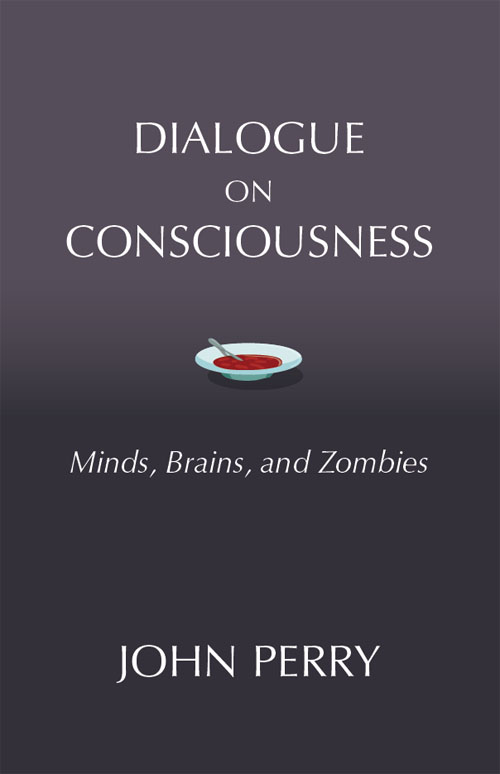
DIALOGUE ON
CONSCIOUSNESS
Minds, Brains, and Zombies
DIALOGUE ON
CONSCIOUSNESS
Minds, Brains, and Zombies
John Perry
Hackett Publishing Company, Inc.
Indianapolis/Cambridge
Copyright 2018 by Hackett Publishing Company, Inc.
All rights reserved
Printed in the United States of America
21 20 19 18 1 2 3 4 5 6 7
For further information, please address
Hackett Publishing Company, Inc.
P.O. Box 44937
Indianapolis, Indiana 46244-0937
www.hackettpublishing.com
Cover design by Deborah Wilkes
Composition by Aptara, Inc.
Library of Congress Cataloging-in-Publication Data
Names: Perry, John, 1943 author.
Title: Dialogue on consciousness : minds, brains, and zombies / John Perry.
Description: Indianapolis : Hackett Publishing Company, Inc., 2018. | Includes bibliographical references.
Identifiers: LCCN 2018006879| ISBN 9781624667367 (pbk.) | ISBN 9781624667374 (cloth)
Subjects: LCSH: ConsciousnessMiscellanea. | Imaginary conversations.
Classification: LCC B808.9 .P48 2018 | DDC 128/.2dc23
LC record available at https://lccn.loc.gov/2018006879
ePub3 ISBN: 978-1-62466-768-8
John Perry, A Dialogue on Personal Identity and Immortality .
John Perry, Dialogue on Good, Evil, and the Existence of God .
Rocco J. Gennaro, Mind and Brain: A Dialogue on the Mind-Body Problem .
Suzanne Cunningham, What Is a Mind?
Contents
The page numbers in curly braces {} correspond to the print edition of this title.
{vii}
Gretchen Weirob, Sam Miller, and Dave Cohen are my inventions. Gretchen teaches at a small college, Dave is a student there, and Sam is a local minister. I think of them as having a life beyond these Dialogues , however, that explains how they came to be written.
When Weirob, Miller, and Cohen had philosophical conversations, Miller kept fairly detailed notes. He wrote up these notes in a rather dry fashion, which focused on the arguments. Dave Cohen gave me a lot of information about how the conversations actually went, and, of course, I have my own memories of Gretchen Weirob and Sam Miller. These are the sources I have used to reconstruct this dialogue and its two companions, A Dialogue on Personal Identity and Immortality , and Dialogue on Good, Evil, and the Existence of God . I found the notes of the conversations presented here in a folder of Millers that mainly consisted of works by and about Leibniz. That struck me as a bit odd, but turned out to have an explanation. Im still searching for more notes from their conversations.
This story doesnt explain one rather puzzling thing. From events in the other Dialogues , we know these notes must come from a conversation no later than the early 1970s. Yet Gretchen, Sam, and Dave talk about topics, and use terminology, that became common in philosophy much later, like the zombie argument and the knowledge argument. Its almost as if they had read David Chalmers, The Conscious Mind. It seems that the three of them were so brilliant that they came up with ideas, and terminology, years before it appeared elsewhere. That is the only explanation I can think of.
{1}
Gretchen Weirob welcomes Sam Miller and Dave Cohen for lunch and philosophical discussion.
Miller: | Something smells good! |
Weirob: | Tomato soup. From fresh tomatoes, not a can. Enjoy! |
Lets make sure I have our plan straight. Dave has the week off for spring break; he doesnt have to attend classes. And I have the week off; I dont have to teach classes. As a minister, Sam can pretty much do what he wants with his time, except on Sundays and when he has a christening or a funeral. So we are going to meet here Monday, Wednesday, and Friday to talk philosophy over lunch. Ill provide the food, you guys provide the topics. | |
Miller: | My job is a bit more demanding than that, Gretchen. But Im looking forward to lunch and philosophy. |
Weirob: | No offense intended. |
So whats our topic today? | |
{2} Cohen: | Sam and I have been talking about Ren Descartes*. |
Weirob: | You are trying to convince Sam he isnt dreaming? Or he is trying to convince you? Or perhaps he is trying to convince you that one of Descartes arguments for the existence of God really works? |
Miller: | None of those things really. Dave is trying to show me that Descartes arguments for dualism dont work. Im resisting. I like Descartes arguments. Especially his conclusion. |
Weirob: | Cartesian dualism, huh? The mind is one thing, completely immaterial. The body, including the brain, is a very complicated physical object. We each have a mind and a body, until we die. |
Im not surprised you like Descartes views, Sam. He thinks our bodies are material objects, doomed to return to dust and ashes. But our minds are immaterial. They cant fall apart, because minds have no parts. Such immaterial minds are good candidates for immortal souls. | |
Miller: | You are exactly right. I think I have, or perhaps that I am, an immaterial immortal soul. So Descartes way of looking at it is very attractive to me. |
I assume you dont think this, Gretchen. Youre happy to think that youre just a physical being. | |
{3} I dont want to be just a physical thing. I dont really understand why anybody would be happy merely being a physical being. | |
Admit it, Gretchen, deep down wouldnt you like to be immaterial and so possibly immortal? Then the three of us could continue to have these conversations in heaven someday! | |
Weirob: | I admit, that would be nice, assuming we all end up in heaven, which isnt so obvious in my case. If we are simply immaterial souls in heaven, you wouldnt have a mouth and I wouldnt have ears, so conversaton might be difficult, but I suppose there is some more direct way of communicating in heaven. Actually, immortality might be a bit much. But maybe a few extra years of disembodied philosophical discussions would be fun. And perhaps I could learn to play a harp. Except if it is just my immaterial soul that survives, without any hands, that might be tricky. |
Miller: | Sarcasm. I had a feeling youd say something like that. You are such a materialist. |
Weirob: | I plead guilty to being a materialist. But we need to be careful here. Some materialists are eliminative materialists. They think minds were part of a theory humans came up with a long time ago, when they didnt know better. Minds were immaterial things of some sort. Now that we know how the brain and central nervous system work, we should just reject the theory, and eliminate minds altogether. Nineteenth-century chemists had a theory that included phlogiston, a special {4} substance that explained fire. Now we realize there is no such stuff, and the phenomenon of things catching fire can be better explained without it. Eliminative materialists think our concept of mind has the same status. We should put it in the dustbin and just talk about brains. |
Miller: | So if you arent an eliminative materialist, what sort of materialist are you? |
Weirob: | I think minds are more like stars. Our ancestors noticed stars and learned a lot about them. They observed constellations. They learned to navigate with the North Star. But they didnt know what stars were.... |
Font size:
Interval:
Bookmark:
Similar books «Dialogue on consciousness: minds, brains, and zombies»
Look at similar books to Dialogue on consciousness: minds, brains, and zombies. We have selected literature similar in name and meaning in the hope of providing readers with more options to find new, interesting, not yet read works.
Discussion, reviews of the book Dialogue on consciousness: minds, brains, and zombies and just readers' own opinions. Leave your comments, write what you think about the work, its meaning or the main characters. Specify what exactly you liked and what you didn't like, and why you think so.

